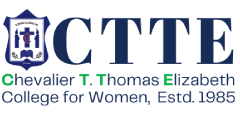


✅ Eligibility Criteria
The Department of Commerce (Corporate Secretaryship), established in 1987, provides a strong foundation in corporate governance, financial management, and business law. Designed to meet industry demands, the program blends academic rigor with practical training, preparing students for careers in corporate compliance, finance, and business administration.
Programme Highlights
Career Opportunities
Graduates can pursue careers as Company Secretaries, Chartered Accountants, Financial Analysts, Legal Advisors, Corporate Consultants, and Banking Professionals. Many students opt for higher education, including M.Com, MBA, CA, CS, and CMA.
